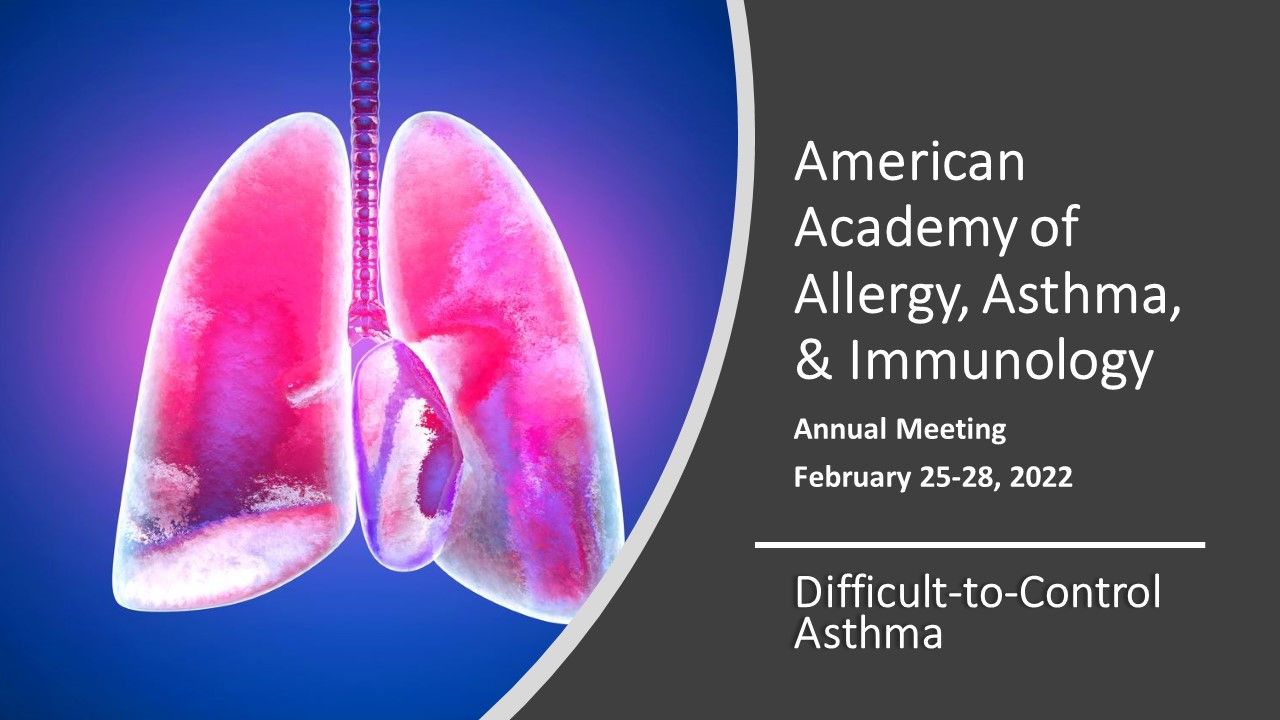- Clinical Technology
- Adult Immunization
- Hepatology
- Pediatric Immunization
- Screening
- Psychiatry
- Allergy
- Women's Health
- Cardiology
- Pediatrics
- Dermatology
- Endocrinology
- Pain Management
- Gastroenterology
- Infectious Disease
- Obesity Medicine
- Rheumatology
- Nephrology
- Neurology
- Pulmonology
American Academy of Asthma, Allergy & Immunology 2022 News Highlights
AAAAI late-breaking science and findings that could change your treatment plan for patients with severe asthma, summarized by our editors for easy access.

Asthma May be Linked to Severe COVID-19 but Not to Risk for Hospitalization
Patients with asthma who did require hospitalization for SARS-CoV-2 infection were at greater risk for intubation and remdesivir treatment, a new study reports.
Racial/Ethnic Bias Found in Asthma Clinical Trials Used to Update NHLBI Guideline
In the majority of studies that reported racial/ethnic data, White participants were highly overrepresented and Black/Hispanic/all Other underrepresented.
Tezepelumab Reduced Number of Symptomatic Days in Adults and Children with Severe, Uncontrolled Asthma
Patients with severe, uncontrolled asthma given tezepelumab experienced a reduction in asthma symptomatic days, found a new analysis of the NAVIGATOR trial.
Tezepelumab Found Effective in Reducing Exacerbations in Moderate-to-Severe, Uncontrolled Asthma
Tezepelumab significantly reduced exacerbations that required hospitalization or an ED visit in a new analysis of patients with moderate-to-severe, uncontrolled asthma.
New Study Identifies Key Risk Factors Likely to Accelerate a COPD Diagnosis in Patients with Asthma
New research highlights several key risk factors that are likely to accelerate the progression from asthma to COPD, including older age and prior tobacco use.
Tezepelumab Reduced Inflammatory Biomarkers of Severe Asthma in as Little as 2 Weeks
New data from the phase 3 NAVIGATOR trial found tezepelumab treatment reduced inflammatory biomarkers of severe, uncontrolled asthma in as little as 2 weeks.
Tezepelumab Reduces Exacerbations in Patients with Severe Asthma Regardless of Season
New data from the phase 3 NAVIGATOR trial demonstrate superior efficacy of tezepelumab to reduce asthma exacerbations in severe disease year round.
No Rx Required for COVID-19 Vaccination But ACIP Calls for Better Informed Consent Process
September 22nd 2025The ACIP on September 19 narrowly voted against requiring a prescription to get the shot but urged more detailed discussion of vaccine risks during shared decision making conversations.
